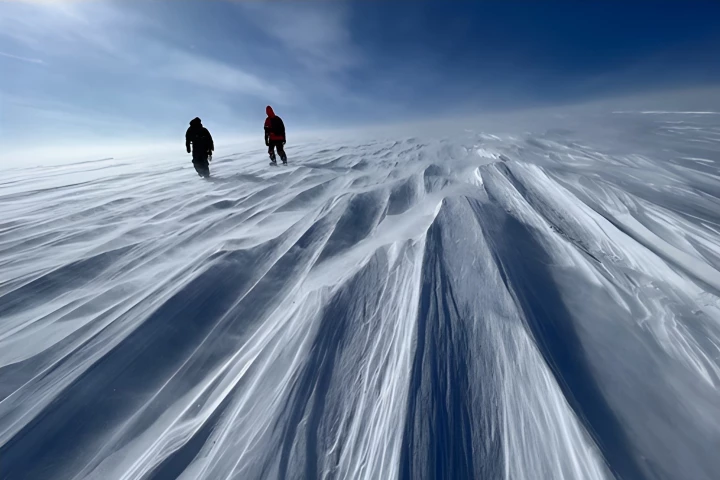Science
The latest in science news, from the depths of space to the quantum realm.
Top Science News
-
For nearly a century, a strange band of 5,200 holes carved into a hillside has defied explanation. Stretching for nearly a mile along the edge of the Pisco Valley, Monte Serpe – "serpent mountain" – may have finally revealed its secrets to scientists.
-
Archeologists say they have solved the 6,000-year-old mystery of Armenia’s “dragon stones" – massive carved monoliths scattered across high-altitude slopes and pastures where no ancient settlements ever existed. It's a story of worship and water.
-
High on sheer cliffs in China, ancient coffins are wedged into rock faces hundreds of feet above the ground. These dramatic burials, now re-examined using ancient DNA, point to a broader practice where disparate cultures all had their own "sky graves."
Load More
Latest Science News
-
Super-smart, eavesdropping dogs pick up new words like human toddlers
January 09, 2026 | Michael FrancoSpelling F-O-O-D or O-U-T might only get you so far around your dog if he or she is considered a Gifted Word Learner. Researchers have just figured out that even when you're not talking to them directly, they're still acquiring new terms. -
Earth built a nuclear reactor two billion years before we did
January 08, 2026 | Bronwyn ThompsonTwo billion years before we made history and split the atom, the Earth had already accomplished it and was running its own nuclear reactors. And they operated for hundreds of thousands of years, as the first signs of multicellular life emerged. -
Mysterious human-like creatures shared island cave with humans
January 08, 2026 | Michael FrancoA 26-ft deep excavation in Indonesia has revealed that humans and a hominin species that pre-dates humans used the same cave. The enticing possibility even exists that both species overlapped, sharing the space at the same time. -
World’s most powerful hypergravity machine is 1,900X stronger than Earth
January 07, 2026 | Bronwyn ThompsonChina has eclipsed its own – and the US – world record, building a monster underground hypergravity centrifuge that can model scenarios with 1,900 times the gravitational force of Earth, bending space and time with unprecedented power. -
Extreme drilling unearths secrets of disappearing ice dome
January 07, 2026 | Michael FrancoIn northwestern Greenland, researchers working on the GreenDrill project have cored through a 500-meter-thick ice dome. They found something startling: the dome completely disappeared 7,000 years ago. And it might do it again. -
'Microneedling' of plants could boost growth and reduce fertilizer waste
January 04, 2026 | Malcolm AzaniaA new thumb-patch of dissolvable microneedles injects biofertilizer directly into plant leaves. In lab tests, kale and choy sum grew taller and faster with bigger leaves and shoot biomass, using 15% less biofertilizer. -
The mystery of Japan’s underwater 'crop circles' has a romantic twist
January 03, 2026 | Bronwyn ThompsonIn 1995, divers first noticed a group of bizarre sandy "crop circles" on the seabed near southwest Japan. But it took decades for scientists to identify the marine artists behind them – and why they were building such geometrically precise structures. -
Neanderthals weren’t picky meat eaters – they munched on maggots, too
December 31, 2025 | Jay KakadeUsing chemical clues from Neanderthal bones, researchers have placed them at the top of the food chain, alongside apex predators like lions. However, until now, experts have been missing out on one of their key, fat-rich, food sources: Maggots. -
Neanderthals were actually making fire 400,000 years ago
December 30, 2025 | Jay KakadeOnce thought an exclusive human skill, the ability to make fire on demand has long been seen as a turning point in our evolutionary story. But new research suggests Neanderthals also mastered fire-making hundreds of thousands of years before Homo sapiens. -
The year that changed how we see the world around us
December 30, 2025 | Bronwyn ThompsonIt's that time of year – and my personal favorite corner of science to look back on – when we recap the many fascinating discoveries in the plant and animal kingdom in 2025. Orcas have again made news, but no luxury yachts were hurt in the process.
Load More












